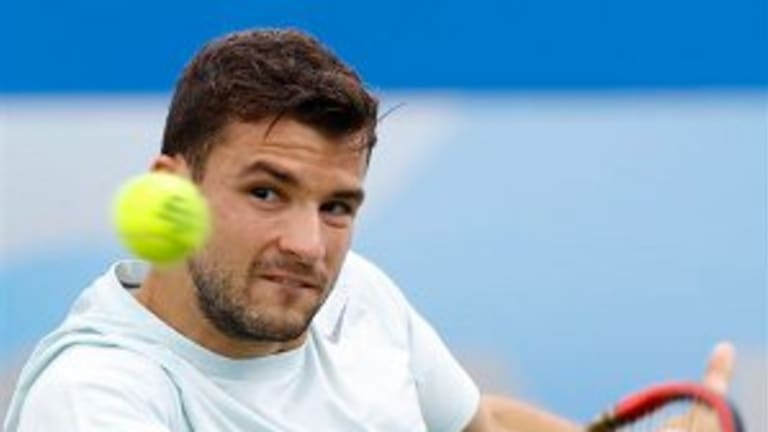LONDON—If you won the lottery, would you keep doing your job? Lleyton Hewitt would. In a sense, that’s exactly what he’s doing now. The 32-year-old is, after all, playing with house money at this point, his legacy assured with all his titles, including a Wimbledon and U.S. Open. After so many injuries and surgeries that I’ve lost track of them all, there must be something pretty powerful that keeps the former No. 1 sweating and running and struggling on the court, when he could stay home, play with his children, polish all those trophies. Hewitt said on Monday that the Grand Slams and the Davis Cup are what he’s playing for now, which doesn’t explain terribly much, really, when you think about it.
If you don’t need the money, and you’re no longer playing to define your career, it must be because you’re passionate about what you do—or perhaps because you don’t know what else there is. I’m watching Hewitt at the beginning of his match today, playing a man ten years his junior and ranked 54 places above him, on a cold and windy day beneath lowering clouds and in front of a sparse crowd, and what I’m thinking is: Can this really be fun for you? Then, early in what turns out to be a comprehensive victory over rising star Grigor Dimitrov, Hewitt is chasing down a ball and a slip on the grass turns into a full-on knee-slide, like a rock star punctuating a successfully-delivered anthem. He gets the ball back nevertheless, wins the point, pops back up on his feet like a jack-in-a-box, and gives a triumphant fist-pump to his box and, yes, perhaps that’s what love looks like.
By contrast, Dimitrov’s most memorable moment in the match comes when he manages to somehow laugh off mishandling a ball directly into his groin. It’s a nice comedy moment and a metaphor for his performance all in one neat package—no pun intended. The young Bulgarian is being thoroughly outplayed, but he’s also putting in an underwhelming performance. He’s scrambling at the back of the court from the first point of the match, and while this has a lot to do with Hewitt’s play—the Aussie is effective and incisive from the start, no mere putting the ball back in play today—that’s not the whole story. When Dimitrov does take the initiative on attack—and manages to keep the ball in the court—it’s devastating. It takes him quite a while to realize that’s what he needs to do, though, and by the time the penny drops, he’s a set and a break down and too rattled to execute consistently.
There’s no such uncertainty or ill-preparedness where Hewitt is concerned. He crafts an early break, slicing short into the court, yanking Dimitrov forward so he’s always desperately lunging for the ball. He mixes up the pattern of play wherever possible and only plays baseline rallies on his own terms, side-to-side stuff behind strong serving, going for the lines rarely but effectively. Dimitrov isn’t making a lot of first serves, and he’s making a poor fist of defending his second. Later, in his press conference, Hewitt will rightly mention his returning as a strong aspect of his game today.
